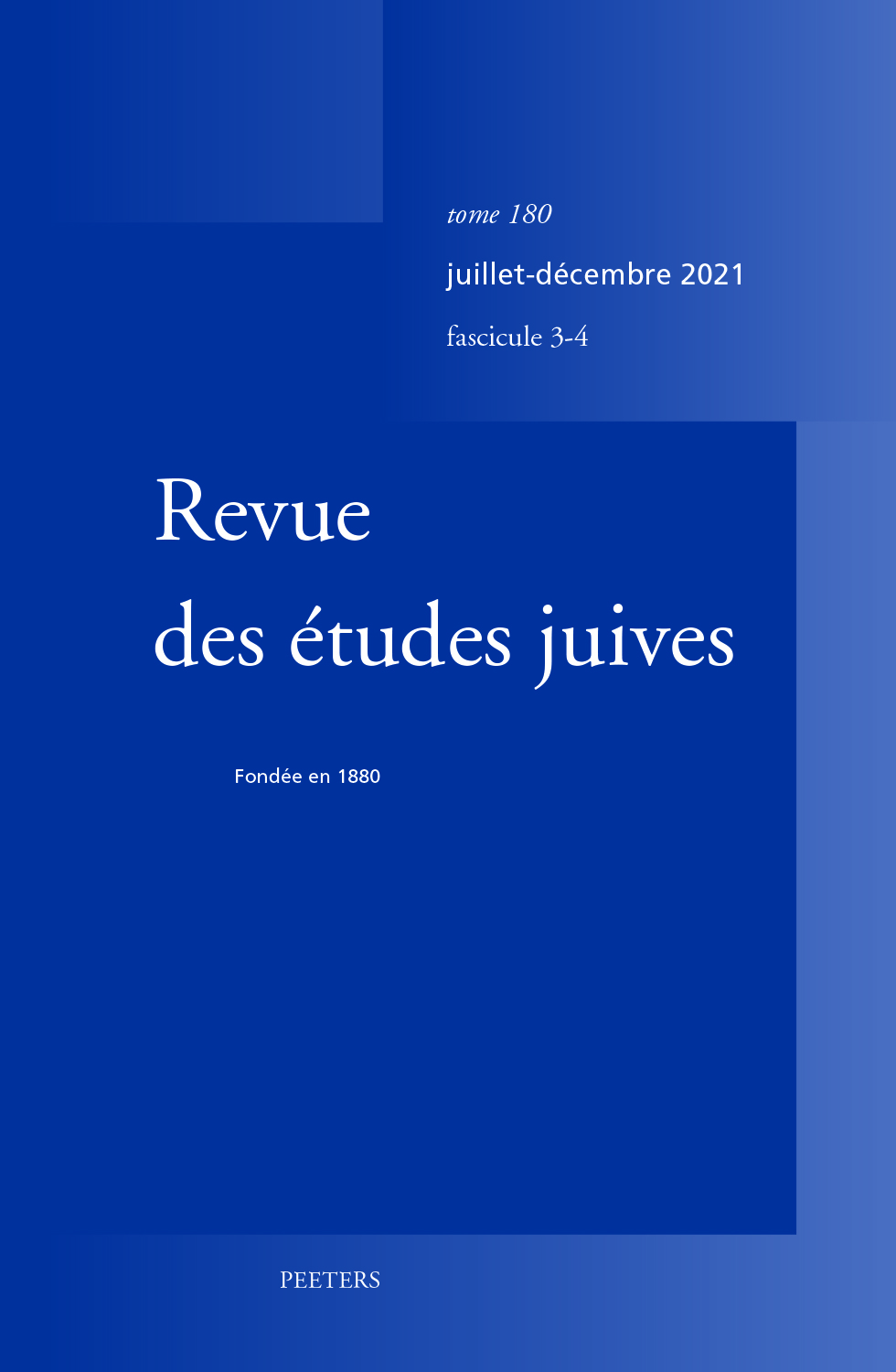 previous article in this issue previous article in this issue | next article in this issue  |

Preview first page |
Document Details : Title: Rabbi Nissim of Girona Subtitle: On Biblical Exegesis and Free Inquiry Author(s): HARVEY, Warren Zeev Journal: Revue des Études Juives Volume: 183 Issue: 1-2 Date: janvier-juin 2024 Pages: 47-54 DOI: 10.2143/REJ.183.1.3293238 Abstract : In his Homily on Creation (Homily 1), Rabbi Nissim of Girona (c. 1310-1376), known by acronym as Ran, interprets Genesis 1:2 in accordance with natural science and subsequently in accordance with social ethics. He also explains to the fundamentalists what gives him the right to interpret the Creation story scientifically, homiletically, or allegorically. He argues that the rabbinic prohibition on teaching the Account of the Beginning (ma'aseh be-rešit) does not refer to scientific inquiry but to a secret doctrine revealed prophetically. One who has not received prophecy or who is not an initiate of esoteric teachings cannot possibly transgress the prohibition. Ran thus secures the freedom of biblical exegesis and the freedom to philosophize. Dans son Homélie sur la création (Homélie 1), Rabbi Nissim de Gérone (c. 1310-1376), connu sous l’acronyme de Ran, propose une interprétation de Genèse 1, 2 qui l’accorde dans un premier temps avec la science naturelle, puis avec l’éthique politique. Il explique également à l’adresse des lecteurs fondamentalistes ce qui l’autorise à interpréter le récit de la Création de manière scientifique, homilétique ou encore allégorique. Il soutient que l’interdit rabbinique d’enseigner l’Oeuvre du Commencement (ma'aseh be-rešit) ne porte pas sur l’enquête scientifique, mais sur une doctrine secrète, révélée par la voie prophétique. Quiconque n’a pas reçu la prophétie ou n’est pas initié aux savoirs ésotériques ne saurait par définition transgresser l’interdit. Ce faisant, le Ran garantit la liberté de l’exégète biblique et celle de philosopher. |
|


